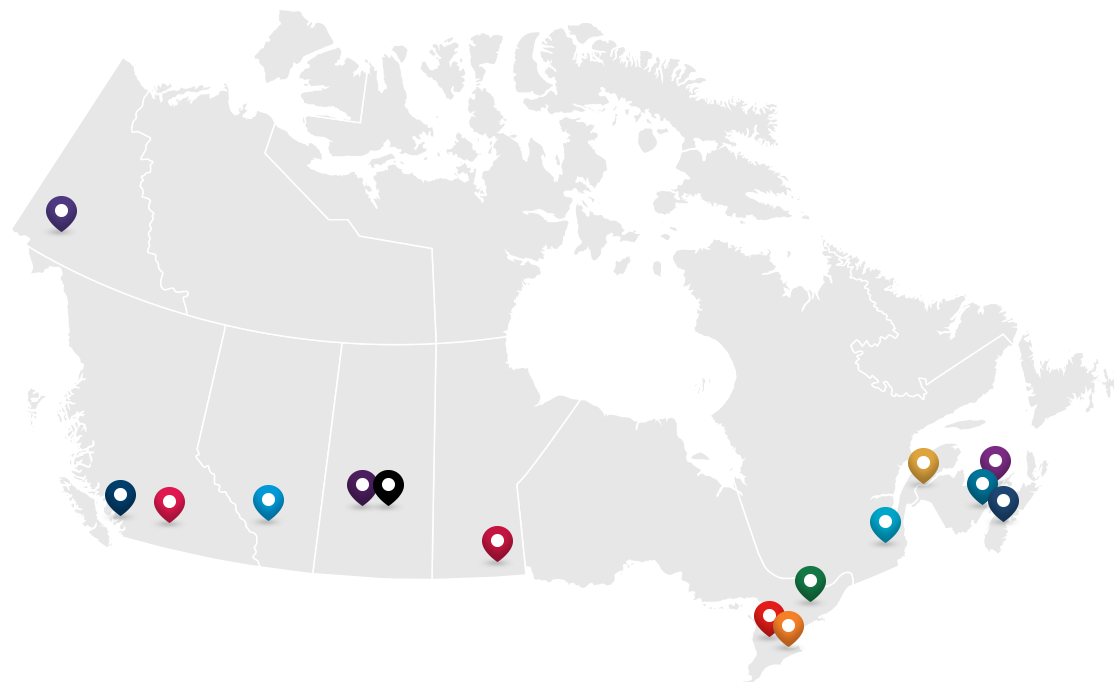
The Macpès teaching and research forest at the Cégep de Rimouski serves as a living laboratory for applied research and teaching sustainable forestry management. Affiliated with the Cégep de Rimouski, Innovation Maritime (IMAR) and SEREX each have the mission to contribute to the development of sustainable practices to support technology transfer to the maritime sector and the forest products processing industry respectively.

New Brunswick Community College (NBCC) offers the skills and education needed for the workforce. With programming in a number of energy security and sustainability industries, including alternate energy, renewables and energy storage, their diverse learning experiences not only offer an edge in the workplace, they position learners for greater impact in their communities and beyond.
Red River College Polytechnic (RRC Polytech) is Manitoba’s largest institute of applied learning and research. RRC Polytech's initiatives provide industry partners with applied research, technical services, and training in areas that align with our expertise and regional socio-economic demand. The College prioritizes sustainable growth, with ongoing work in electric vehicle technology, reduction of food insecurity through culinary innovation, and cold climate efficient building technology.
Saskatchewan Indian Institute of Technologies (SIIT) is a First Nation-governed educational institution that provides adult learners with academic, vocational and technical training as well as services and supports for employment and career growth. With three campus and nine career centres throughout the province, SIIT is truly provincial in scope. Indigenous learners are at the core of SIIT, representing over 95% of the student body.
The Southern Alberta Institute of Technology (SAIT) is an international leader in multi-disciplinary applied research and innovation. Through its six fully-operational research centres, SAIT is supporting and accelerating emerging technologies and innovations in low carbon solutions in energy and electrification based clean-technologies, green-buildings-net-zero systems, carbon management through environmental-technologies, drone-aerial intelligence systems, advanced manufacturing and materials, and digitalization.
A pan-Canadian coalition of colleges, cégeps, institutes and polytechnics supporting a climate-focused economic recovery.
Something went wrong with the twitter. Please check your credentials and twitter username in the twitter settings.
© Canadian Colleges for a Resilient Recovery, 2024